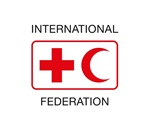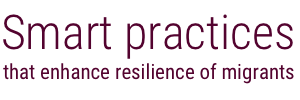Migrants returning home, particularly when the return is unplanned, tend to be more vulnerable; they often lack resources to get to their home town. The centres provide immediate assistance (mostly to address physical needs) to migrants returning home.
The Centre for Care for the Returned Migrant (CAMR), located in the community of Omoa (Atlantic coast of Honduras), is an initiative of the Government of Honduras administered by the Honduran Red Cross. The centre offers the following services: (1) reception and welcome, (2) registration, (3) food and water, (4) health services (first aid and access to a doctor from the Ministry of Health), (5) transport to the bus terminal and a ticket to their home town or a nearby destination, (6) a chapel or prayer room, (7) a phone call, (8) toilets and hygiene services, (9) clothing and footwear, (10) gender-separate accommodation (for up to 100 people), among other services. In addition, the government provides information related to its employment programmes and improved quality of life programmes.
The Belen Care Centre for Returning Underage Migrants (CANFM-Belen) is an initiative of the Government of Honduras, led by the Department of Children, Youth and Family. It offers services similar to those provided by CAMR to returning migrant children (under 21 years old) and their accompanying families, and in addition: (1) a gender- and age-separated playground area, (2) psychological support, (3) social work, (4) gardens and green areas, (5) gender- and age-separated accommodation, and (6) vocational training, among others.
Success factors of the centres include: providing a guide (Family Guides) that informs migrants of the services provided at the centre and how to access them; building awareness in the local community to improve perceptions of returning migrants; creating clear roles, responsibilities, and coordination mechanisms among the various institutions that provide specific services at the CAMR.
In 2015, CAMR served nearly 75,000 returning migrants and CANFM-Belen nearly 8,378 children.
Design. [P1] Focuses on the needs and vulnerabilities of migrants.
Implementation. [P6] Partners with other key actors.
Programme. [P8] Assists returning migrants.
- Building trust among returning migrants of the services offered by CAMR. (To build trust, volunteers board buses that drop off migrants at the border. There, they explain the services provided at CAMR, and then accompany interested migrants to the centre).
- Ensuring that returning children migrants are delivered directly to CANFM-Belem by the buses that transport them to the border (achieved through negotiation with the buses).
- Coordinated work with government entities and other actors provides more and better migrant services (leverage capabilities of different institutions).
- Data collection and registration of migrants during admission to the Centre can improve decisions (e.g., regarding services and migration policies).
Smart practices
Smart practices report and database survey
About the report
People migrate in pursuit of a better life for themselves and their families. As described in the International Federation of Red Cross and Red Crescent Societies’ (IFRC) Policy on Migration, “migrants are persons who leave or flee their habitual residence to go to new places – usually abroad – to seek opportunities or safer and better prospects.
Read more
About the International Federation

